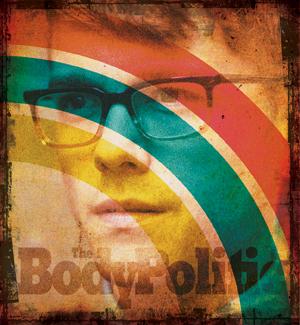Roughly two years ago, I was unexpectedly offered the chance to write a book that essentially condensed the entire history of queer rights in Canada into something like 150 pages. When I was approached about the project, I knew I couldn’t pass up such an opportunity, but I also couldn’t help but ask the publisher, “Wouldn’t it be a better idea if you hired someone who’d lived through it all?”

Credit: Photo of Peter Knegt by Adam Coish; Photo Illustration by Lucinda Wallace
Not to say I’ve experienced my 10 years of official queerness in some sort of utopia of human rights advancement. As you can learn by reading any contemporary issue of Xtra, the fight for queer rights in this country is far from over. But it’s undeniable that the years that preceded my own experiences contained some of the most influential moments in the narrative I was being asked to depict in my book.
Fortunately for me, a paper time machine of sorts has been provided: the past 40 years of material produced by Pink Triangle Press.
“You should probably just start with The Body Politic,” one of the many lovely volunteers at the Canadian Lesbian and Gay Archives said to me on the first of countless research visits. The Body Politic was the genesis of Pink Triangle Press, and it is also one of the primary sources for my book.
In hindsight
I had come across The Body Politic on a few occasions while I was doing research for this or that queer studies class as an undergrad, but I never fully comprehended its scope. When the first of the seemingly endless boxes of back issues was placed in front of me at the archives, that quickly began to change. Reading through The Body Politicisn’t simply reading through some magazine. It is a historical and cultural experience, a portal into the lives of the women and men who fought to allow me the privilege of writing my book in the first place.
The onset of AIDS in Canada, which reads like a horror story you know the ending to; the massive bathhouse raids in Toronto, Montreal and Edmonton (and almost everywhere else); the raids on The Body Politic office itself after the infamous “Men Loving Boys Loving Men” article, and the subsequent legal battles faced by three Pink Triangle Press directors; the extensive “clean-up” of queer Montreal in anticipation of the 1976 Olympics; the civil rights legal battles surrounding John Damien and Doug Wilson; the dramatic battle Vancouver bookstore Little Sister’s waged against Canada Customs… Pivotal moment after pivotal moment covered with such remarkable passion and detail. And these writers weren’t even getting paid. As a queer Canadian, as a journalist and as someone trying to chronicle history, I was absolutely blown away.
I ended up photocopying more than 1,000 pages from the magazine, advertisements included (a couple of hilariously dated personal ads still hang on my fridge). And while that allowed me to complete my task, this fact remains: no queer Canadian history lesson can compare to the education of reading everything Pink Triangle Press has offered us. From the 15 years of The Body Politic to the 27 years ofXtra that follow, it should be required reading for every queer person in Canada the second they come out.
Peter Knegt is a journalist and the author of the recently published book About Canada: Queer Rights.
 Why you can trust Xtra
Why you can trust Xtra


